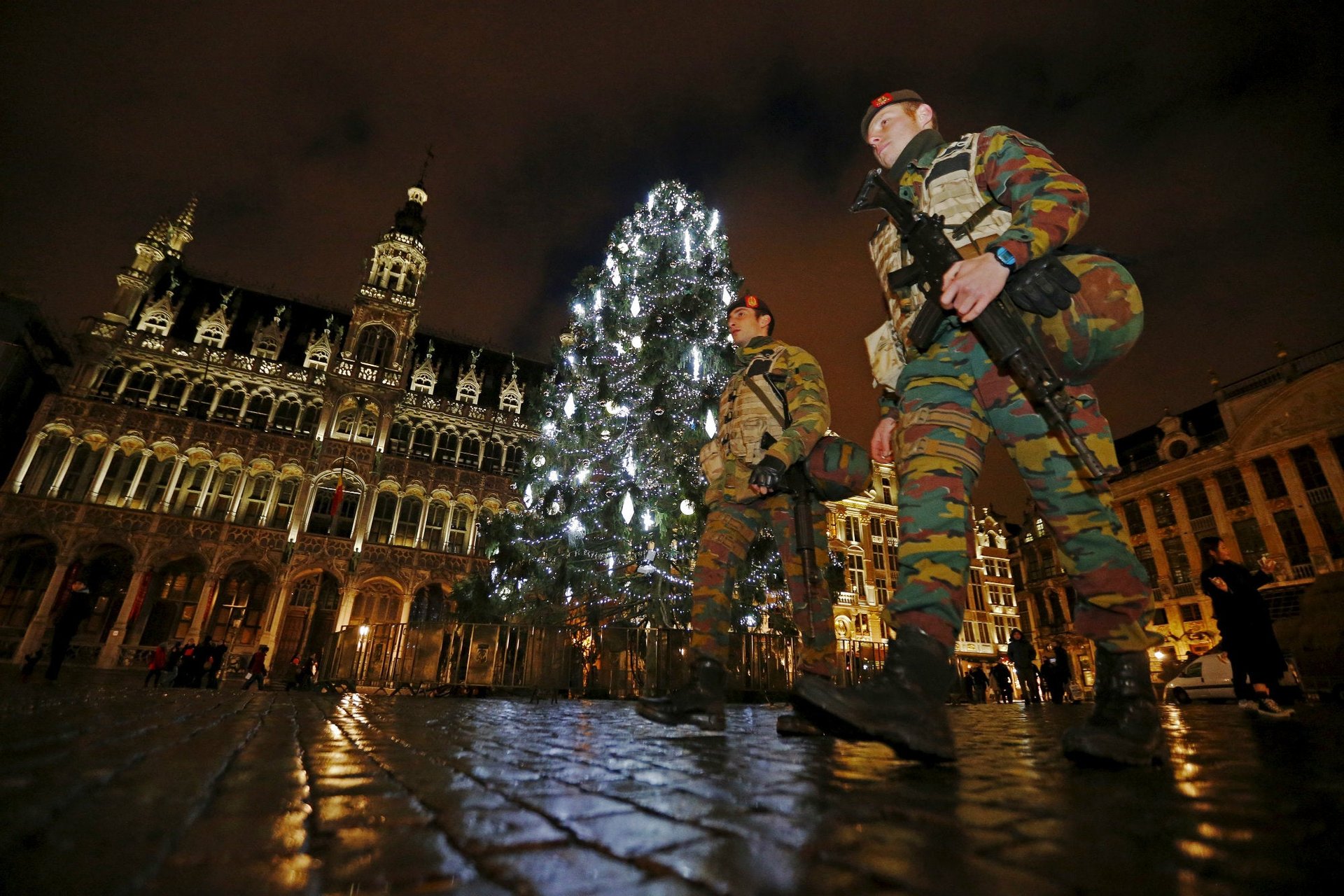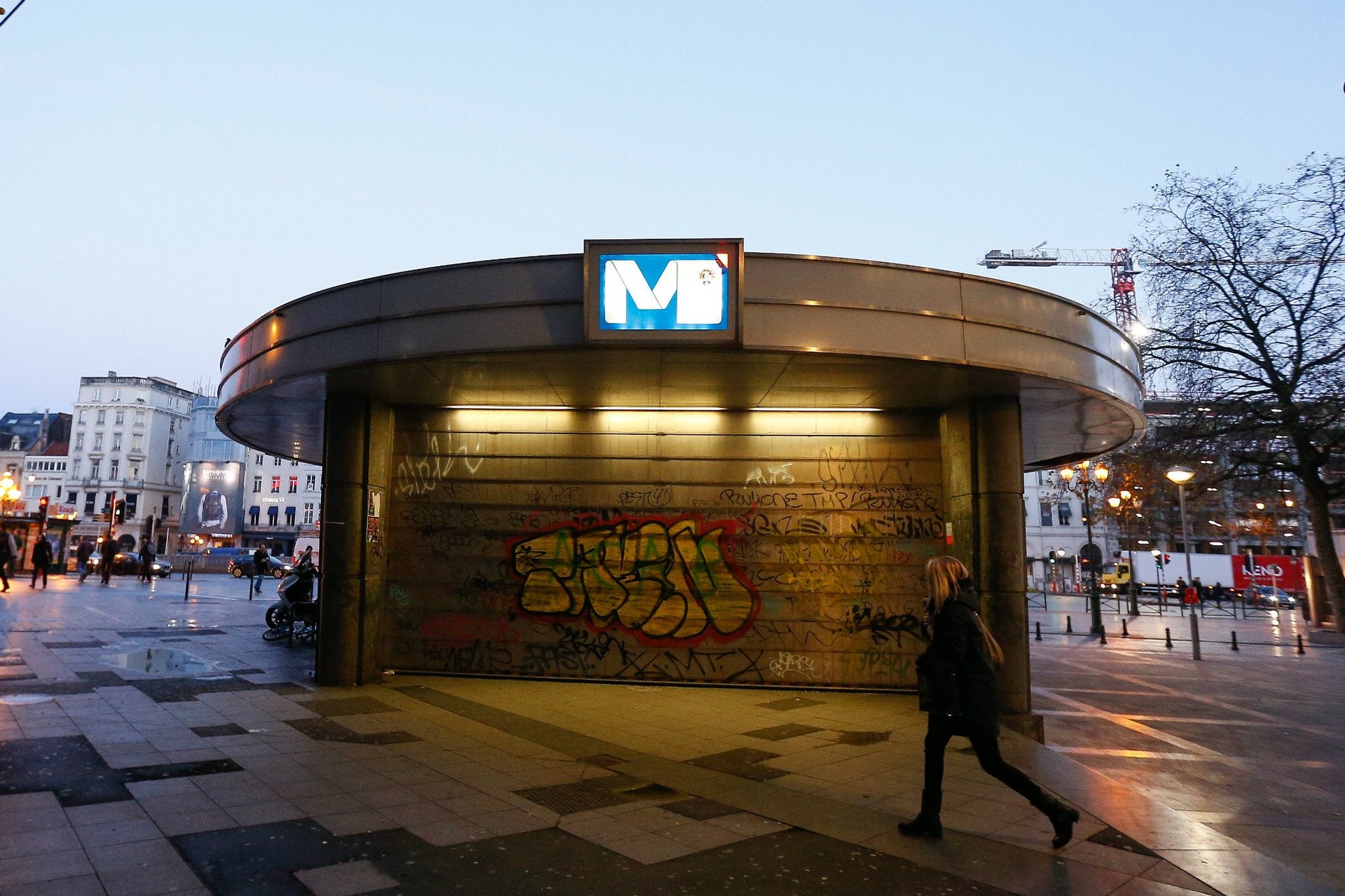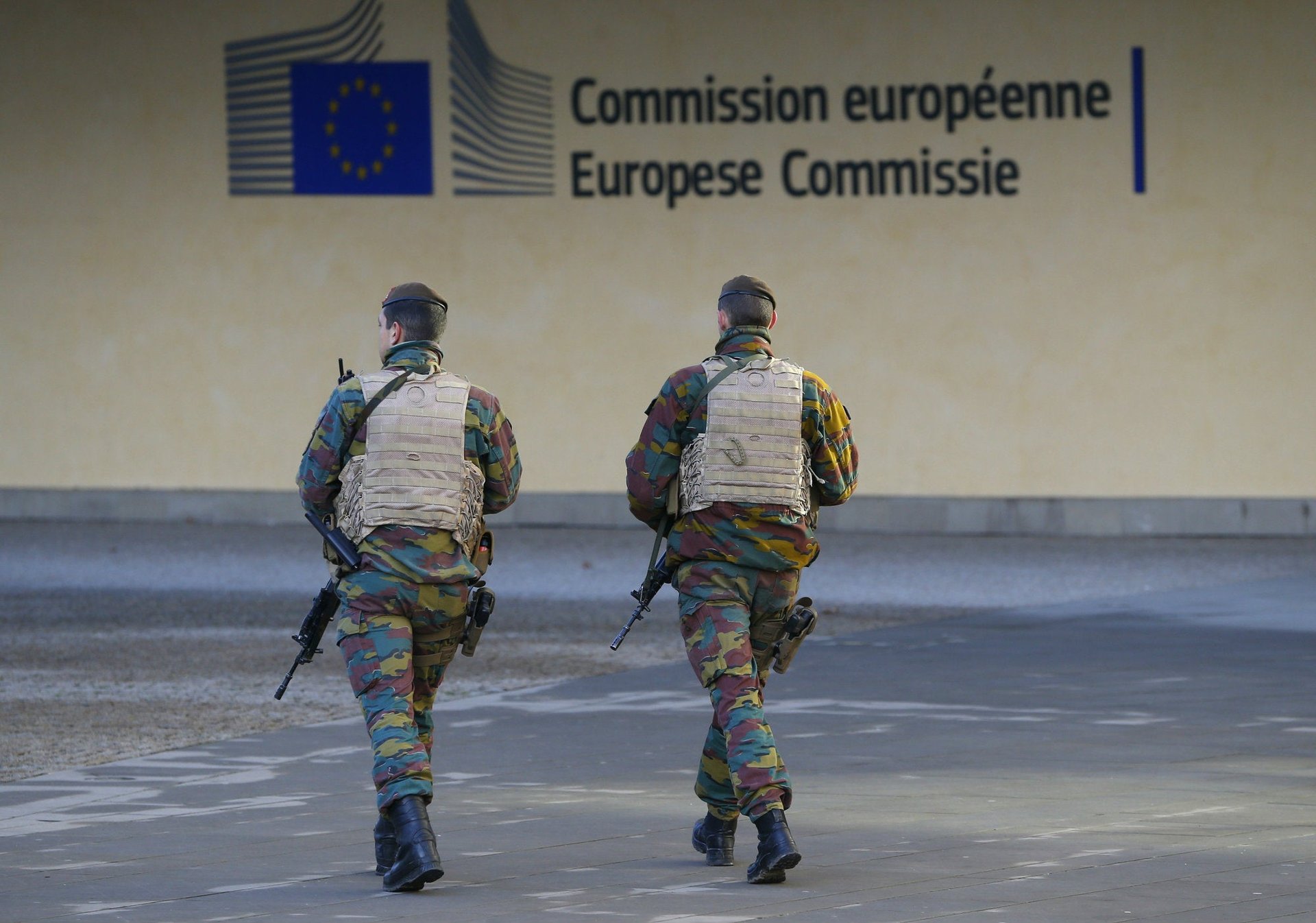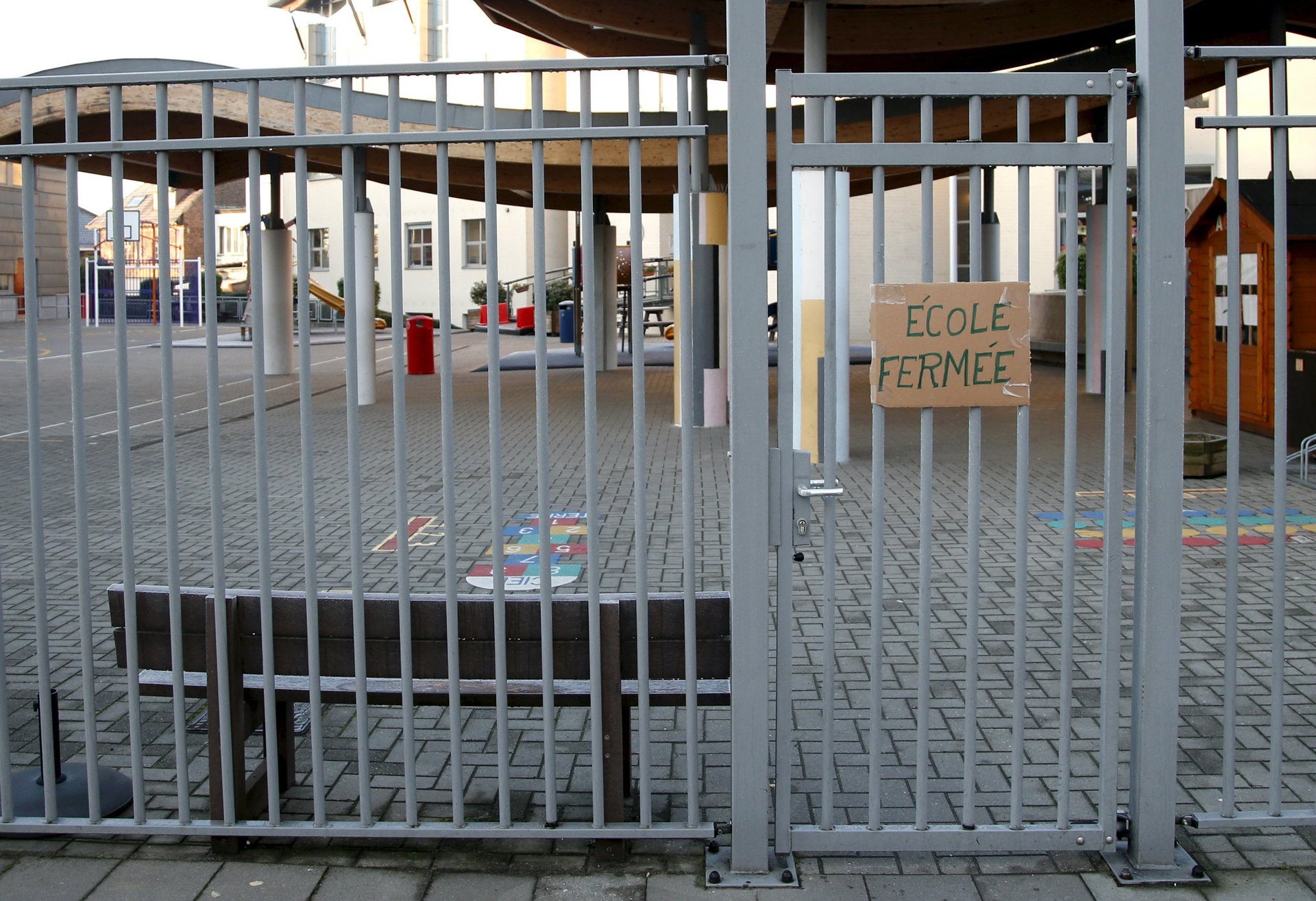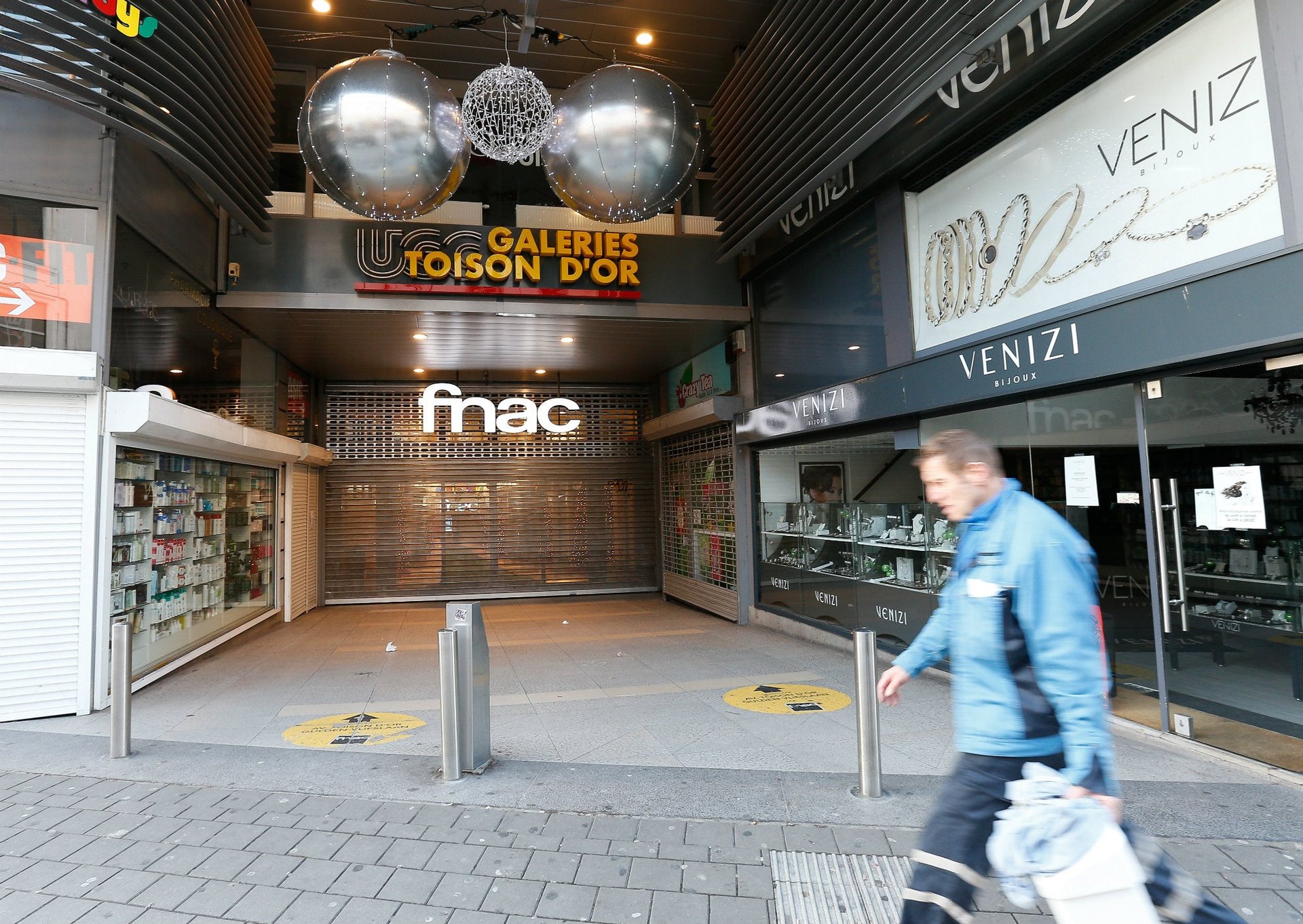In the face of “serious and imminent” threats, the lockdown in Brussels shows no signs of abating
Updated November 23, 8.30 EST


Updated November 23, 8.30 EST
Brussels, the administrative capital of the EU and home of several of the attackers who killed 130 in Paris last weekend, is on high alert for a third day.
The subway, schools, malls, theaters, museums, and many other businesses remain closed. Large contingents of soldiers and police are patrolling the city center. The restrictions and extra security have been imposed in response to a ”serious and imminent” threat of attacks in the city, according to the government (link in French).
A series of raids and arrests were made yesterday (Nov. 22), although a man thought to have been among the attackers in Paris has not yet been apprehended, despite reports that he returned to Brussels after the shootings and remains armed and dangerous.
What happened over the weekend?
- In the early hours of Saturday morning, Belgian authorities raised the terror threat for Brussels to its highest level.
- On Sunday, 22 separate raids were carried out across Brussels and 16 arrests were made. No weapons or explosives were found during the raids, although police fired two shots at a car in the Molenbeek neighborhood before arresting the driver.
- On Monday another five arrests were made after five more raids in Brussels and the eastern city of Liege.
- The arrests did not include Salah Abdeslam, an alleged Paris gunman who lived in Molenbeek. Police have detained a suspect accused of picking up Abdeslam in Paris after the attacks and driving him back to Brussels. Reports that suggested he might have been tracked down to Liege proved unfounded.
What do the Belgian authorities say?
- Charles Michel, Belgium’s prime minister, said in a speech last week that more attacks were expected, and that sweeping security and surveillance powers were needed to combat them. “There will be other threats, other attacks, and more suffering,” he said, but added: “We will not choose between safety and freedom.”
- Michel announced more powers to prevent clamp down on radicalizing forces like preachers and to track those suspected of being radicalized with electronic bracelets. Other powers will include the ability to search houses at any time; extending the detention period for terror suspects from 24 to 72 hours; and a ban on being able to buy pre-paid phone cards anonymously.
- The prime minister will ask for €400 million ($425 million) to be added to the budget for fighting terrorism next year.
What does “high alert” mean?
- Belgian authorities said on Monday (link in French) that Brussels will remain on alert level 4 (the highest level), and the rest of the country on level 3.
- The Brussels metro network will remain closed until at least this afternoon, when the government’s crisis center will conduct an evaluation.
- Schools and universities in the capital are closed until further notice. Sporting events could also be called off, and places where large groups of people gather, including entertainment venues and shopping centers, are mostly shut in the city center.
What’s with all the tweets about cats?
- Yesterday the police asked locals not to spread news about its raids on social media, lest it gave away their positions. Belgians responded by flooding Twitter with pictures of cats, obscuring the tweets of users discussing the raids on the popular hashtag #BrusselsLockdown and providing some welcome levity among the tension.
- After the raids, the Belgian police thanked Twitter users, and their cats, for their cooperation (“For the cats who helped us last night… Help yourself!”):
